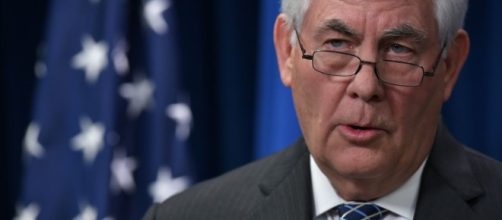Secretary of State Rex Tillerson will be skipping his first meeting with NATO according to officials within the administration. The meeting scheduled for April has raised even more concern with European allies over the Trump administration commitment to NATO, especially after it was confirmed by the State Department that Tillerson will be traveling to Russia for meetings later in the month.
NATO commitments
A spokesman for the State Department downplayed the scrapped meeting with NATO, saying Tillerson would meet with most of the members on Wednesday.
The Coalition to Defeat ISIS will meet in Washington this Wednesday including NATO Secretary General Jens Stoltenberg. This unwelcome news comes among the backdrop of Trump’s recent Twitter tirade at Germany and confirmation from FBI Director James Comey that the bureau is actively investigating Russia’s interference in the 2016 presidential election.
Foreign policy pivot
Throughout Trump’s campaign and first days in office, he has spoken highly of President Vladimir Putin, and signaled to European allies America’s commitment to NATO may not always be there if countries do not pay their fair share. This pivot towards more authoritarian regimes has European officials worried, and lawmakers at home concerned as well.
U.S. Rep. Eliot L. Engel (D- N.Y.) responded to news of the canceled meeting, saying, “Donald Trump's administration is making a grave error that will shake the confidence of America's most important alliance.” He added the change was “an absolute disgrace.” (NBC News).
Instead of meeting with NATO members as scheduled, Tillerson will go to the Mar-a-Lago resort, also known as the Winter White House, to to sit in on a meeting between President Trump and Chinese President Xi Jinping. Tillerson is sending Tom Shannon, the State Department's second most senior official, to the NATO meeting scheduled for April 5-6 in his place. A Russian Foreign Ministry spokeswoman would not confirm if Tillerson is scheduled to meet with Russian officials, but stated alarm at “the constant leaks of sensitive information from Washington."

